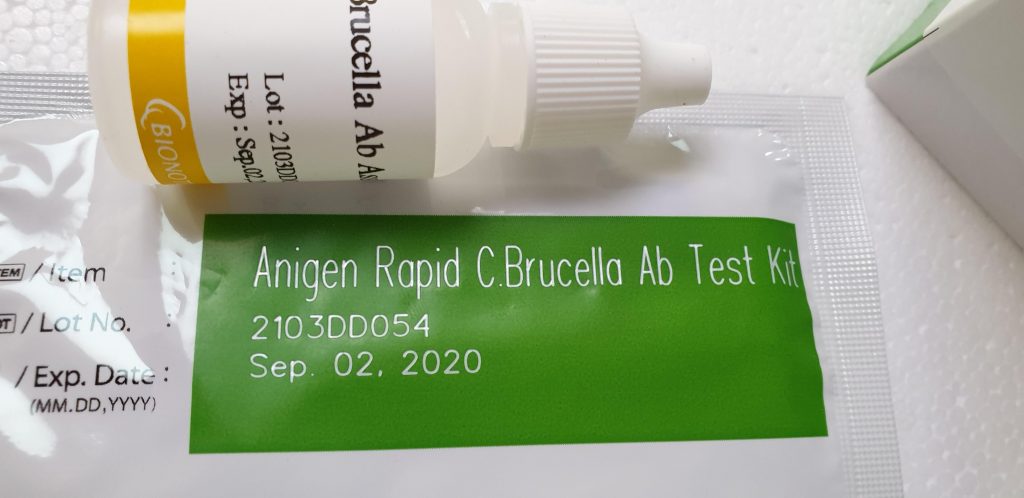Keys To Obtaining Good Antibodies: The Antigen
Not all antibodies work optimally in all techniques. The same monoclonal antibody that gives us excellent results in our flow cytometric assays, may be useless, for example, in Western Blot. One of the keys to obtaining good antibodies for a given application lies in the correct choice of the antigen (peptide, recombinant protein …) to be used in the immunization phase.
While in techniques such as Western Blot, immunohistochemistry or direct ELISA immunoassay, the antibodies recognize generally denatured epitopes, in others such as sandwich ELISA, flow cytometry, immunofluorescence, etc. they will recognize conformational epitopes.
As a general rule, polyclonal antibodies are more versatile, giving good results in a greater number of techniques, while monoclonal antibodies tend to be more technical-specific.
Whatever the case, there is always a common denominator: the design and quality of the antigen used to generate the antibodies, together with the immunization protocols, directly affect its suitability for a specific technique.
Keys To Obtaining Good Antibodies: Antigen Design Depending On The Type Of Assay
1.Western Blot
In Western Blot the target protein is irreversibly denatured by the application of SDS, its secondary, tertiary and quaternary structure disappearing. Therefore, the recommended antigens are:
- Peptides
- Protein fragments
- Recombinant protein
Both polyclonal and monoclonal antibodies usually work well in Western Blotting.
Antibodies against a conformational antigen (especially monoclonal) will not give good results in this technique.
2. Direct ELISA
The target protein or peptide is immobilized on the surface on which the antibody is titrated. It is important to pay attention to the purity of the antigen, since impurities will compete with it to bind to the solid phase.
It should also be borne in mind that by immobilizing the antigen directly on the surface, some epitopes may be hidden or inaccessible to the antibody.
It is recommended to use a different antigen than the one used to immunize (for example, if animals have been injected with a recombinant protein, screen against the native protein).
3. ELISA Sandwich
An antibody immobilized on a surface captures the antigen present in the sample, and this in turn reacts with a second antibody also specific to the antigen.
The secondary antibody is conjugated (to an enzyme, fluorochrome …) to make detection possible.
The antigen is presented in its “native” form, so the use of antibodies that recognize conformational epitopes is generally required. Therefore, generating antibodies against peptides does not usually give good results in this technique, and the use of:
- Protein fragments
- Recombinant protein
- Purified native antigen
By using two antibodies, the reaction is much more specific, although the specificity will be limited by the lowest affinity antibody.
Both polyclonal and monoclonal are suitable for use in this technique, they can even be used in combination.

4. Immunohistochemistry
Antibodies are used to stain sections of tissue. The process these tissues undergo (formaldheido-type fixatives, embedded in paraffin …), usually alter the conformation of the antigen. There are protocols to recover the antigen before staining, but some of them may influence reactivity.
The recommended antigens in this case are:
- Peptides
- Recombinant protein
- Protein fragments
5. Flow cytometry
- In this technique, only antibodies that react against conformational antigens exposed on the cell surface will work. It is essential to select a good conformational antigen that includes the corresponding post-translational modifications. The ideal immunogens would be:
- Recombinant proteins
- Antigens expressed in cells or in plasma membrane fractions.
For reasons of specificity, in flow cytometry the use of monoclonal antibodies is preferable.
6. Cellular assays
In this case, in principle, the same criteria would apply as in flow cytometry. Taking into account that in a polyclonal fraction there could be antibodies with agonist activity mixed with others that show antagonistic activity, in cellular activity assays, the use of monoclonal antibodies is always preferable.
The production of antibodies that function properly in our tests depends on many factors, but undoubtedly one of the keys to good obtaining antibodies is to select, design and obtain the optimal antigen depending on the intended application.
Here you can learn more about our custom antibody production services.

